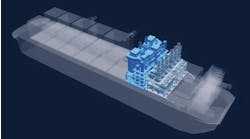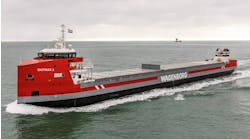ONS 2024: Petronas enters MoU for ZEUS carbon capture development
O&G companies already involved in half of all planned CCS projects
Storing CO2 at scale will require the adaptation of oil and gas expertise, the repurposing of existing infrastructure, and the development of new research into injection methods and technology. This will allows the industry to unlock the CCS developments needed to achieve net-zero ambitions.
Implementation of offshore CCS requires a multidisciplinary approach
As the world continues to address the need to reduce greenhouse gas emissions, offshore CCS will play an increasingly important role in the transition to a low-carbon economy.
Aker Solutions has signed a memorandum of understanding (MoU) with Petronas Carigali, MISC and Clean Energy Systems.
Together they will develop a pilot project featuring the Zero Emission Power Station (ZEUS), an energy solution that combines oxyfuel combustion with CO2 capture and storage.
The combustion process can convert high-CO2 natural gas into power while capturing 100% of the CO2 emissions, Aker Solutions said. The CO2 is then injected into an offshore reservoir for permanent storage or alternatively used to increase production of oil and gas before being permanently stored in the subsurface.
ZEUS’ main advantage is that it can handle the combustion at elevated pressures, the company added, allowing for more compact and simplified process equipment. This could bring substantial cost savings while enhancing CO2 management.
The result could be zero-emission, affordable and reliable power offshore.
In addition, oxyfuel combustion is said to be capable of burning untreated gas straight from the well, including gas with up to a 90% CO2 content, enabling use of gas reserves that would otherwise be considered uneconomic to develop.
Once the technology has been fully demonstrated, the three parties intend to scale ZEUS to address rising energy demands and to support the transition to a more renewable energy mix.
MISC aims to have the technology available on dedicated floating units, with other suppliers brought onboard for further development of the technology.
Aker Solutions is exhibiting this week at booth 7100 at ONS 2024 in Stavanger. View the ONS program to learn more about presentations by this company and more.



